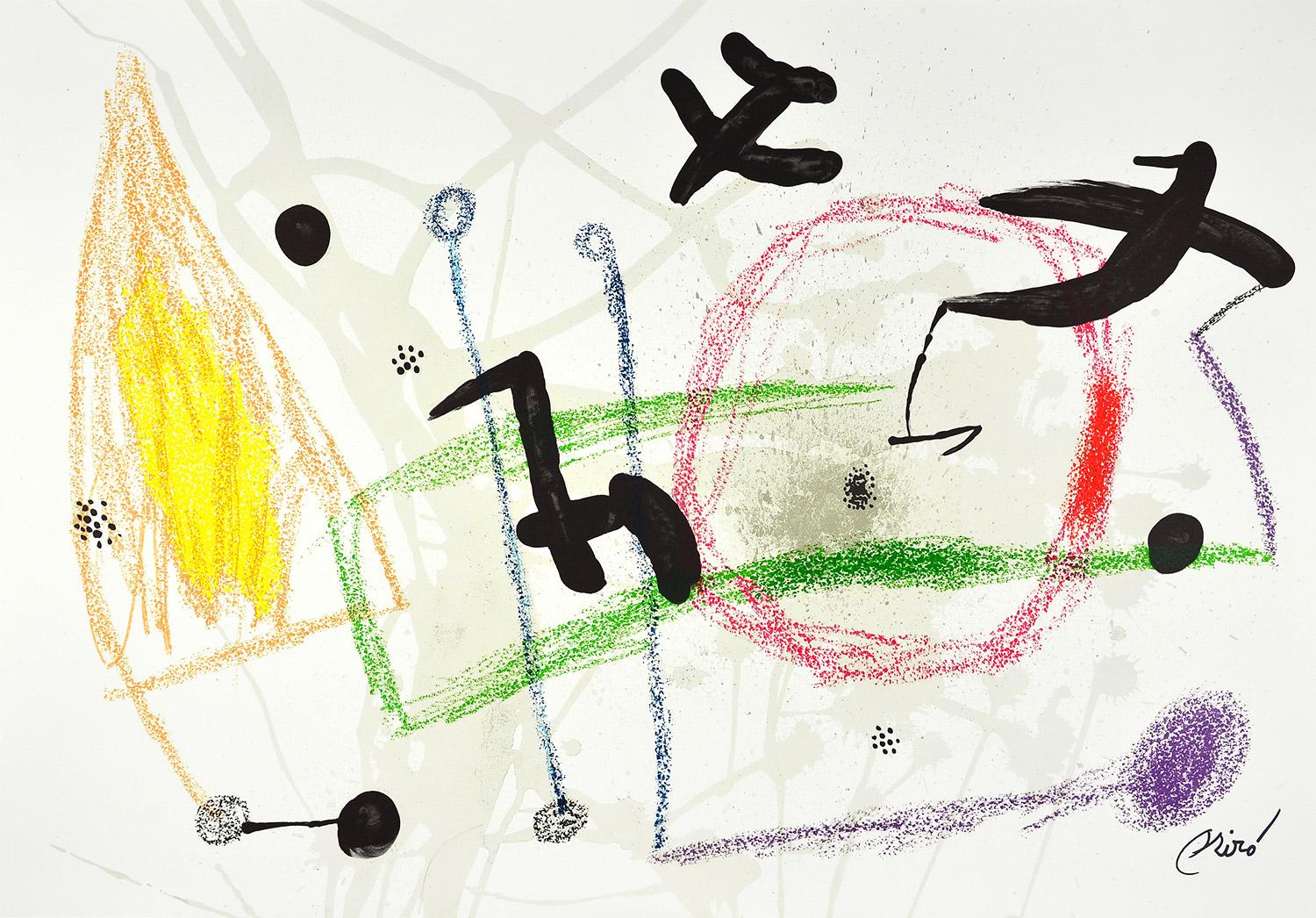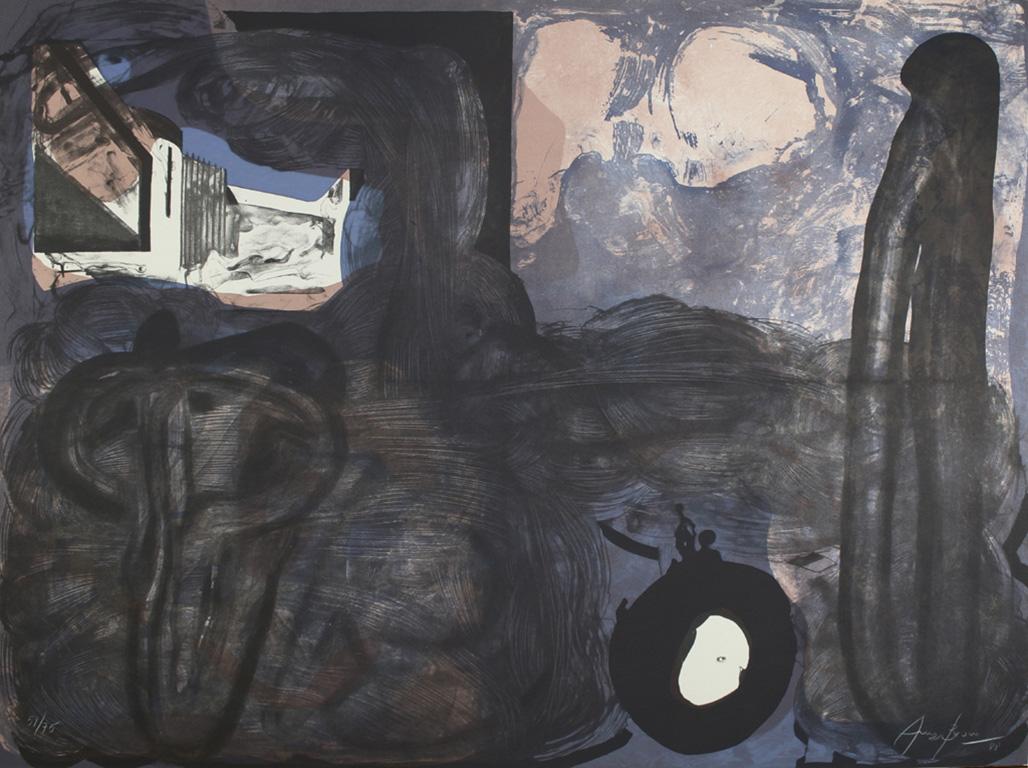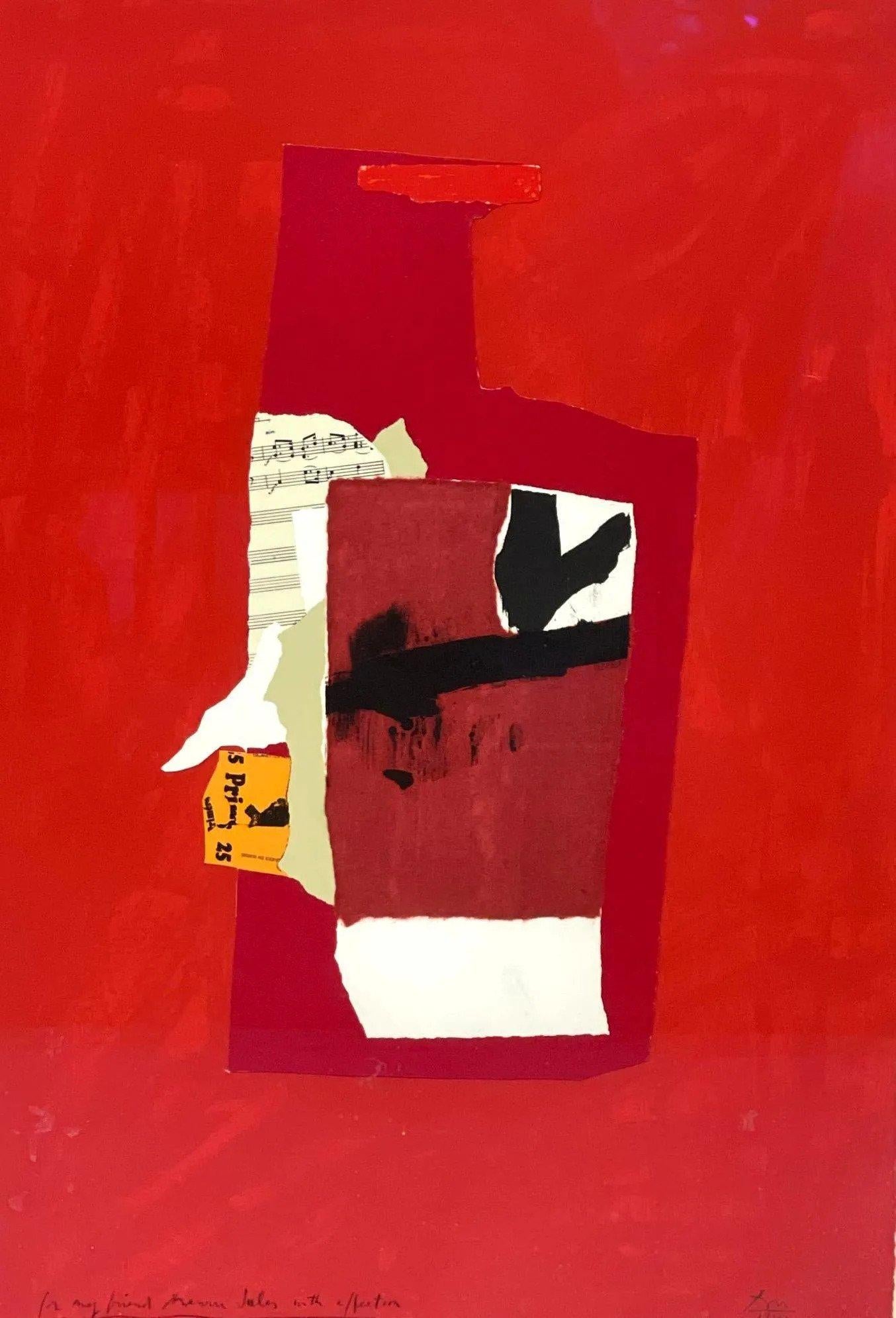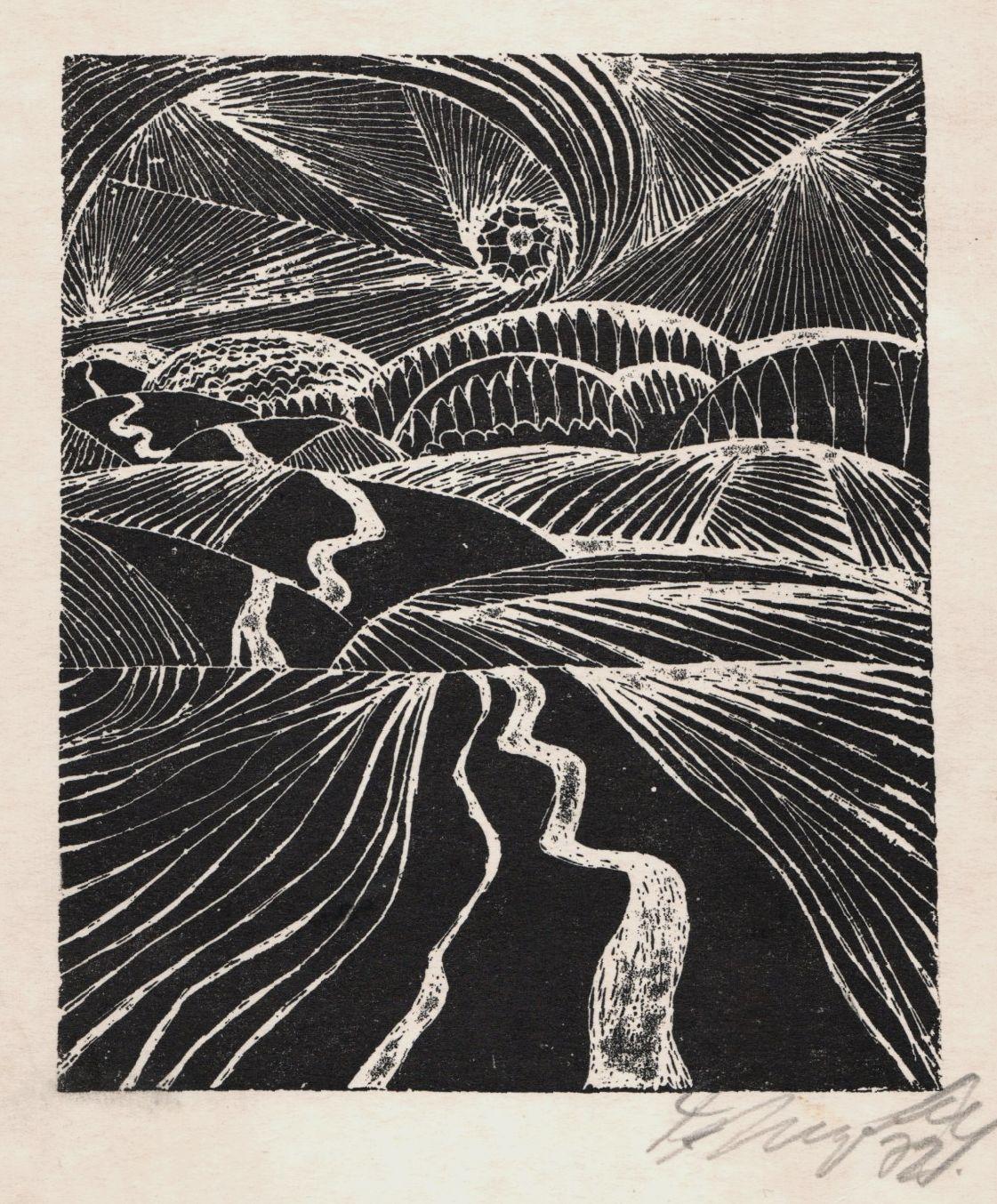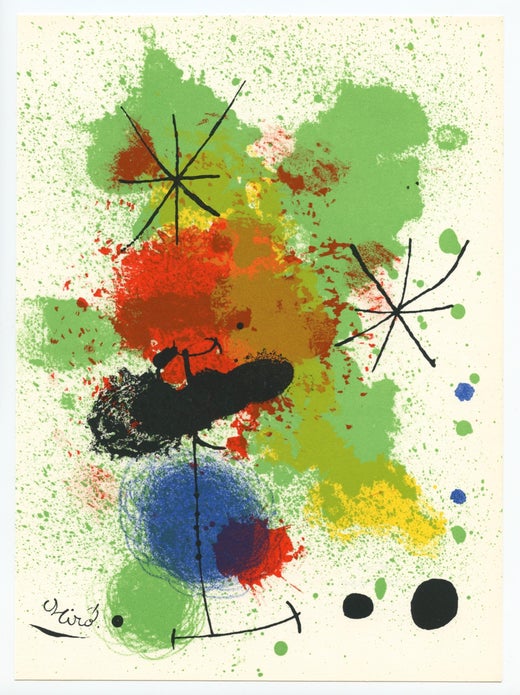Joan MiróJoan Miró - MARAVILLAS CON VARIACIONES... Lithograph Contemporary Art Abstract1975
1975
About the Item
- Creator:Joan Miró (1893 - 1983, Catalan)
- Creation Year:1975
- Dimensions:Height: 19.49 in (49.5 cm)Width: 13.98 in (35.5 cm)Depth: 0.08 in (2 mm)
- Medium:
- Movement & Style:
- Period:
- Condition:
- Gallery Location:Madrid, ES
- Reference Number:1stDibs: LU1033114295142
Joan Miró
With his wide-ranging oeuvre, comprising strikingly original paintings, prints, ceramics, sculptures, metal engravings and murals, Catalan modernist Joan Miró was a critical force in moving 20th-century art toward complete abstraction. Although often considered an early Surrealist because of his nonobjective imagery and evocation of the subconscious, he defies neat categorization.
Miró’s identity is largely rooted in the city of his birth: Barcelona. To this day, a number of his public artworks can be found there, including the 72-foot-tall statue Dona i Ocell (Woman and Bird), 1983. Female and avian forms, along with bright colors and the theme of Catalan pride, are recurring elements in his work.
The radical visual world Miró created with his expressive lines, signature symbols and biomorphic shapes influenced such American Abstract Expressionists as Jackson Pollock and Color Field painters like Mark Rothko and Barnett Newman.
Mirò continued to work and experiment until his death at the age of 90 in 1983. Five years before that, he was quoted saying, “I painted these paintings in a frenzy, with real violence so that people will know that I am alive, that I’m breathing, that I still have a few more places to go. I’m heading in new directions.”
Find a collection of original Joan Miró art on 1stDibs.
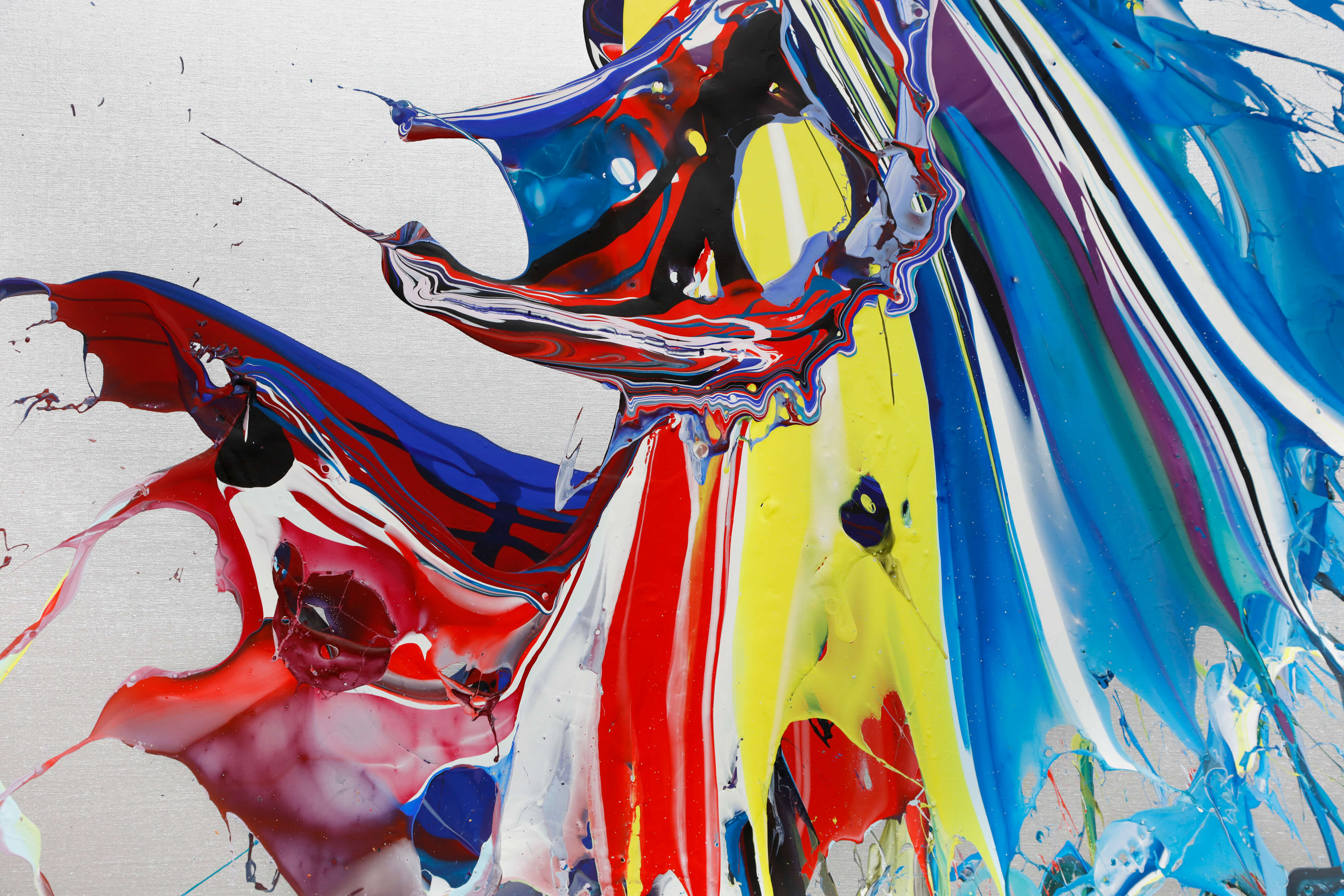
- ShippingRetrieving quote...Ships From: Madrid, Spain
- Return PolicyA return for this item may be initiated within 14 days of delivery.
- Joan Miró - MARAVILLAS CON VARIACIONES... Lithograph Contemporary Art AbstractBy Joan MiróLocated in Madrid, MadridJoan Miró - Maravillas con variaciones acrósticas en el jardín de Miró V Date of creation: 1975 Medium: Lithograph on Gvarro paper Edition: 1500 Size: 49,5 x 71 cm Observations: Lith...Category
1970s Abstract Abstract Prints
MaterialsPaper, Lithograph
- Eduardo Arranz-Bravo - CASA NEGRA (Black House) Lithograph Abstract ContemporaryBy Eduardo Arranz-BravoLocated in Madrid, MadridEduardo Arranz-Bravo - Casa negra (Black House) Date of creation: 1988 Medium: Lithograph on paper Edition: 75 Size: 56 x 76 cm Condition: In perfect conditions and never framed Obse...Category
1980s Abstract Abstract Prints
MaterialsPaper, Lithograph
- Joan Miró - MARAVILLAS CON VARIACIONES... Lithograph Contemporary Art AbstractBy Joan MiróLocated in Madrid, MadridJoan Miró - Maravillas con variaciones acrósticas en el jardín de Miró VII Date of creation: 1975 Medium: Lithograph on Gvarro paper Edition: 1500 Size: 49,5 x 71 cm Observations: Li...Category
1970s Abstract Abstract Prints
MaterialsPaper, Lithograph
- Joan Miró - MARAVILLAS CON VARIACIONES... Lithograph Contemporary Art AbstractBy Joan MiróLocated in Madrid, MadridJoan Miró - Maravillas con variaciones acrósticas en el jardín de Miró XX Date of creation: 1975 Medium: Lithograph on Gvarro paper Edition: 1500 Size: 49,5 x 35,5 cm Condition: In v...Category
1970s Abstract Abstract Prints
MaterialsPaper, Lithograph
- Joan Miró - MARAVILLAS CON VARIACIONES.. Lithograph Contemporary Art AbstractionBy Joan MiróLocated in Madrid, MadridJoan Miró - Maravillas con variaciones acrósticas en el jardín de Miró XIII Date of creation: 1975 Medium: Lithograph on Gvarro paper Edition: 1500 Size: 49,5 x 71 cm Condition: In v...Category
1970s Abstract Abstract Prints
MaterialsPaper, Lithograph
- Joan Miró - MARAVILLAS CON VARIACIONES... Lithograph Contemporary Art AbstractBy Joan MiróLocated in Madrid, MadridJoan Miró - Maravillas con variaciones acrósticas en el jardín de Miró II Date of creation: 1975 Medium: Lithograph on Gvarro paper Edition: 1500 Size: 49,5 x 35,5 cm Condition: In v...Category
1970s Abstract Abstract Prints
MaterialsPaper, Lithograph
- "Redness of Red" Lithograph Screenprint Collage Contemporary Abstract Abex 1/100By Robert MotherwellLocated in New York, NY"Redness of Red" Lithograph Screenprint Collage Contemporary Abstract Abex 1/100 Redness of Red by Robert Burns Motherwell (1915-1991) Lithograph Scree...Category
1980s Abstract Abstract Prints
MaterialsPaper, Lithograph, Screen
- Composition. 43/60. 1985. Paper, lithography, 40x30 cmLocated in Riga, LVComposition. 43/60. 1985. Paper, lithography, 40x30 cmCategory
1980s Abstract Abstract Prints
MaterialsLithograph, Paper
- Summer. 1981, paper, color lithography, 50x46By Aleksandrs DemboLocated in Riga, LVSummer. Cycle "Open letters to a friend" 1981, paper, color lithography, 50x46 cmCategory
1980s Abstract Abstract Prints
MaterialsPaper, Lithograph
- Up towards the sun. 1972, paper, lithography, 15x12.5 cmLocated in Riga, LVUp towards the sun. 1972, paper, lithography, 15x12.5 cm Dzidra Ezergaile (1926-2013) Born in Riga. School years alternate with summer work in the countryside. In 1947, she began he...Category
1970s Abstract Landscape Prints
MaterialsPaper, Lithograph
- 23/100, 1974. Paper, lithograph, 43x65 cmBy Gudmund OlsenLocated in Riga, LV23/100, 1974. Paper, lithograph, 43x65 cmCategory
Late 20th Century Abstract Abstract Prints
MaterialsPaper, Lithograph
- 23/100, 1974. Paper, lithograph, 43x65 cmBy Gudmund OlsenLocated in Riga, LV23/100, 1974. Paper, lithograph, 43x65 cmCategory
Late 20th Century Abstract Abstract Prints
MaterialsPaper, Lithograph
